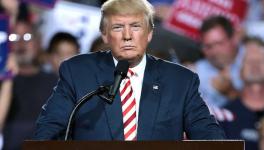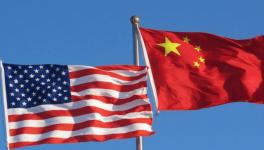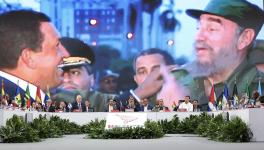US Issues Unilateral Coercive Measures Against Venezuelan Legislators
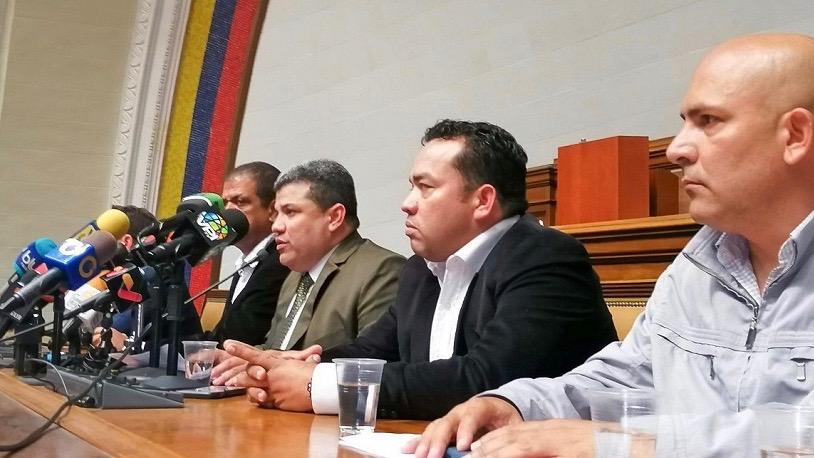
The Office of Foreign Assets Control (OFAC) of the US Department of the Treasury, announced on January 13, that it would impose unilateral coercive measures against seven opposition legislators of the National Assembly (AN) of Venezuela.
According to the official statement issued by the US agency, the punitive measure was taken due to the “failed attempt” of these seven parliamentarians “to illegitimately seize control of the National Assembly” and because they allegedly prevented the far-right opposition leader and self-proclaimed interim president “Juan Guaidó and other deputies from participating in a constitutionally required election of the National Assembly leadership.”
The list of legislators sanctioned by the US government includes all the newly elected members of the governing board of the AN: President Luis Eduardo Parra Rivero, first Vice-President Franklyn Leonardo Duarte, second Vice-President Jose Gregorio Noriega Figueroa and the Secretary Negal Manuel Morales Llovera. The three other deputies are José Dionisio Brito Rodríguez, the legislator who denounced Guaidó for being a part of a corruption scheme within the parliament; Conrado Antonio Pérez Linares and Adolfo Ramón Superlano, who are linked to the alleged irregularities.
In the statement, the US government has referred to these legislators as “Venezuelan government officials” despite the fact that they all belong to different opposition parties and that in Venezuela, legislative power is independent of the executive power. In the statement, it has also been stated that if these deputies “side with the people of Venezuela and Juan Guaidó as their legitimate leader,” the sanctions could be reversed.
The same legislators facing sanctions, Parra, Duarte, Noriega and Morales, were constitutionally elected on January 5, as the new board members of the AN with the votes of 81 legislators. However, Guaidó and his supporters rejected these results and held a parallel parliamentary session in the office of opposition newspaper El Nacional, where he was ‘re-elected’ as the president with the votes of, supposedly, 100 legislators. Two days later, minutes after a plenary session with the newly elected authorities concluded, he forcefully broke into the parliament and swore in as “re-elected president” and again proclaimed himself “interim president” of the country. Guaidó’s announcements, as always, received the support of the United States and the Lima Group.
Venezuelan government denounced this new attack by the US administration of applying “unilateral coercive measures” against public servants. In a statement, Venezuelan authorities said that the Donald Trump administration “intends to hide its evident failure in its attempt to impose a change of government by force.” The government reaffirmed that “no foreign pressure will divert it (Venezuela) from the path of independence and adherence to the sovereign democratic will of its citizens.”
Last week, on January 9, Venezuelan Minister of Foreign Affairs, Jorge Arreaza, denounced the United States’ intentions to intervene in the country’s parliamentary elections in a press conference. Arreaza revealed a diplomatic note sent by the US government to several countries seeking international support for the National Assembly elections planned to be held this year in Venezuela. The letter was dated December 17, weeks before the parliamentary process began in the country on January 5.
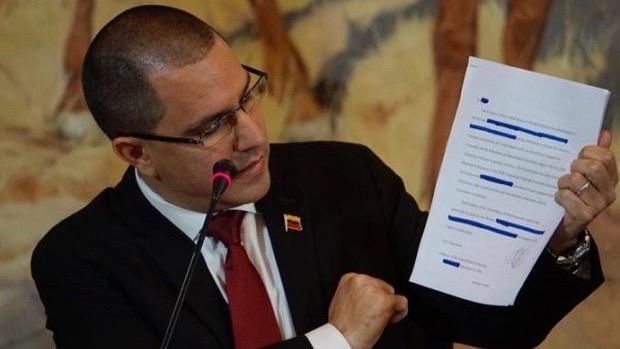
Venezuelan Foreign Minister Jorge Arreaza denounced Donald Trumpâs administration for intervening in the countryâs parliamentary elections on January 9. Photo: VTV
“We want to denounce the interventionist strategies of the United States government against the sovereignty and the will of the Venezuelan people (…) A document was circulated by the foreign ministries of the world, a diplomatic note of December 17 from the United States embassy in which they attach a document entitled: The United States requires support for the elections of the National Assembly of the year 2020 in Venezuela,” said Arreaza.
Arreaza indicated that in the document, the US government insisted on forming a transitional government in Venezuela, and maintaining sanctions against the country to force the resignation of the democratically elected President Nicolás Maduro.
“They insist on the change of government to call elections at their discretion, accord
Get the latest reports & analysis with people's perspective on Protests, movements & deep analytical videos, discussions of the current affairs in your Telegram app. Subscribe to NewsClick's Telegram channel & get Real-Time updates on stories, as they get published on our website.











